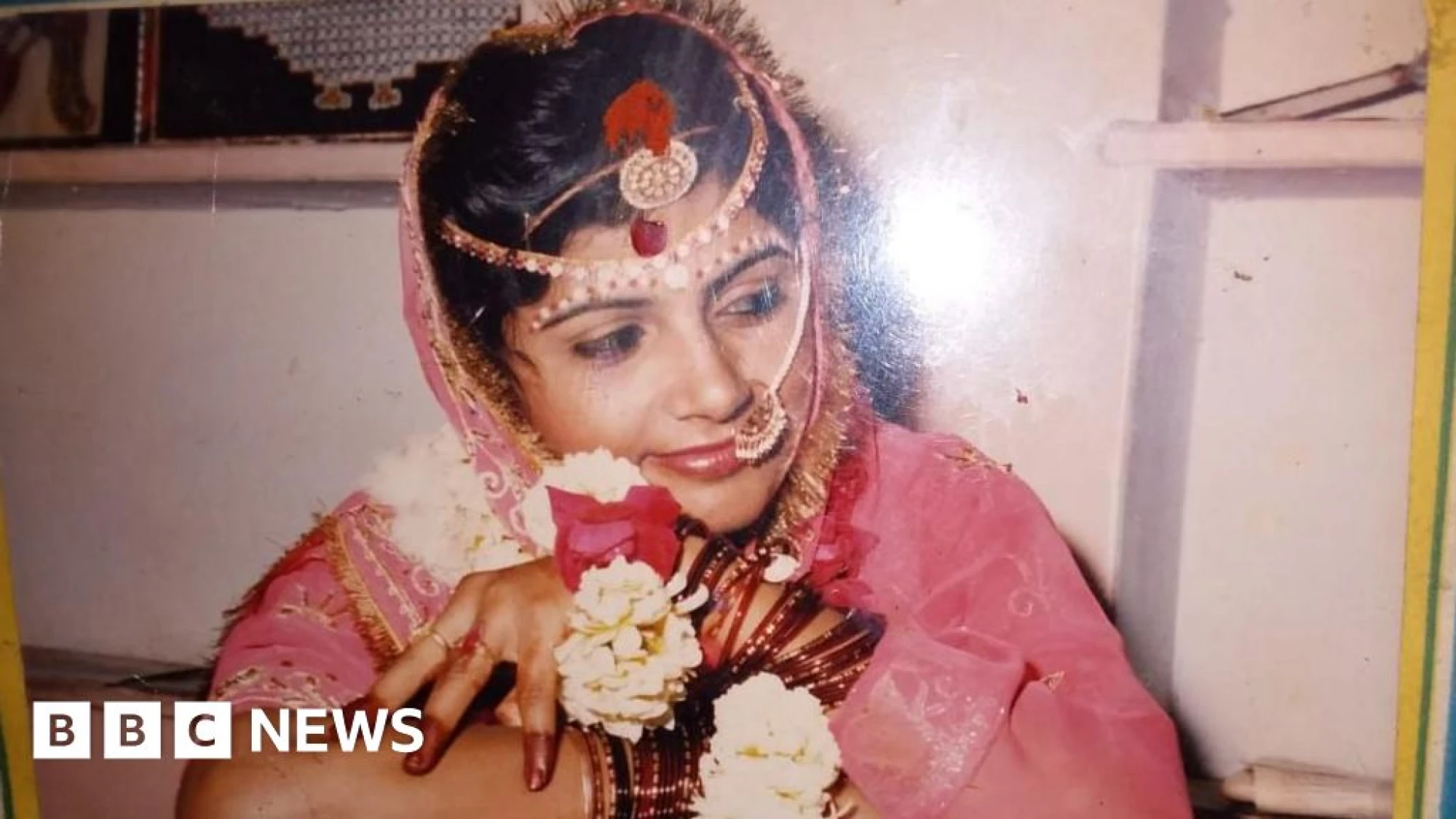Sati: Why India widow-burning case is back in news after 37 years

Roop Kanwar was burned alive in 1987 on her husband’s funeral pyre. Her story is making headlines again.
British Broadcasting CorporationWatchHomeNewsUS ElectionSportBusinessInnovationCultureArtsTravelEarthVideoLiveHomeNewsIsrael-Gaza WarWar in UkraineUS & CanadaUKUK PoliticsEnglandN. IrelandN. Ireland PoliticsScotlandScotland PoliticsWalesWales PoliticsAfricaAsiaChinaIndiaAustraliaEuropeLatin AmericaMiddle EastIn PicturesBBC InDepthBBC VerifyUS ElectionElection pollsKamala HarrisDonald TrumpJD VanceTim WalzSportBusinessExecutive LoungeTechnology of BusinessWomen at the HelmFuture of BusinessInnovationTechnologyScience & HealthArtificial IntelligenceAI v the MindCultureFilm & TVMusicArt & DesignStyleBooksEntertainment NewsArtsArts in MotionTravelDestinationsAfricaAntarcticaAsiaAustralia and PacificCaribbean & BermudaCentral AmericaEuropeMiddle EastNorth AmericaSouth AmericaWorld’s TableCulture & ExperiencesAdventuresThe SpeciaListEarthNatural WondersWeather & ScienceClimate SolutionsSustainable BusinessGreen LivingVideoLiveLive NewsLive SportHomeNewsUS ElectionSportBusinessInnovationCultureArtsTravelEarthVideoLiveAudioWeatherNewslettersWhy fight for justice isn't over in India's 'horrific' widow-burning case, 37 years onMohar Singh MeenaRoop Kanwar was burned to death on her husband's funeral pyreIt was a case that made headlines globally and led to widespread condemnation.
A teenaged widow was burned on her husband's funeral pyre under the Hindu practice of sati 37 years ago.
Now Roop Kanwar’s story has returned to headlines in India after a court acquitted eight men accused of glorifying her death, in the last of the remaining cases in the grisly saga.
Sati was first banned in 1829 by the British colonial rulers, but the practice had continued even after India’s independence in 1947. Kanwar is recognised as India’s last sati.
The outrage over her death forced the Indian government to introduce a tough new law – Commission of Sati (Prevention) Act, 1987 – banning the practice and, for the first time, also its glorification. It mandated death or life term for those committing sati or abetting it. But over the years, everyone accused of involvement in Kanwar’s death and the glorification that followed has been cleared by courts.
https://www.bbc.com/news/articles/cn8ykmn2p1go
Rating: 5